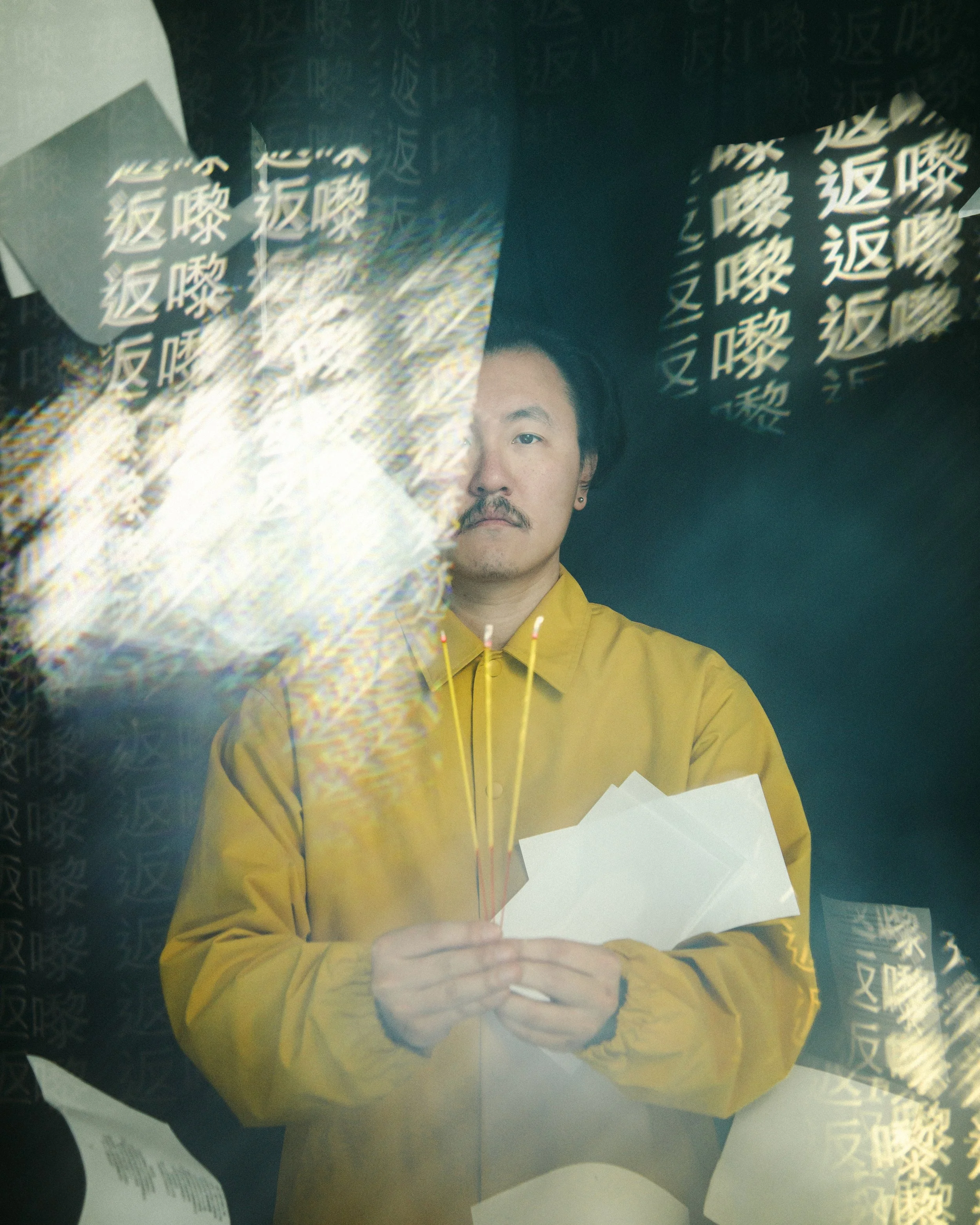Vancouver theatre artist Derek Chan re-examines his relationship to Hong Kong in Happy Valley
New interdisciplinary solo show aims to preserve the home he once knew; brings the Firehall’s season to a close
Happy Valley. Photo by Pedro Augusto Meza
The Firehall Arts Centre presents rice & beans theatre’s Happy Valley from May 25 to June 4
IT’S A WEIRD FEELING to be homesick for a place that doesn’t feel like home anymore. This is the reality of Hong Kong-born Vancouver-based artist Derek Chan, co-founder of Vancouver’s rice & beans theatre.
The place he grew up in hardly resembles its current circumstances, with widespread unrest amid increasing repression by the Chinese government. Internet censorship, the rise of state media, and the banning of the annual Tiananmen Square vigil are just some of the changes that have taken place since the introduction of the National Security Law midway through 2020.
Chan examines the historic, political, and cultural factors surrounding Hong Kong’s current democratic struggles in Happy Valley. The new interdisciplinary solo performance will have its world premiere as the season-closing show of the Firehall Arts Centre.
“I've been gone for so long,” says Chan, who moved to Canada in 2005 to go to SFU. “I really only know my immediate family there now. There is also a lingering question of whether it was safe to travel with a Hong Kong passport anymore. I have since become a Canadian citizen, in October 2022, partly because of this.
“Not being back is... strange,” he shares in an interview with Stir. “And Happy Valley addresses this dissonance as well. I grew up there, so I'm not not a Hong Konger; on the other hand, I have been away for pretty much half my life now, so there’s also a lot about the Hong Kong culture that has moved on from what I remember. It still keeps me up at night that I probably don’t have a Hong Kong to go back to anymore.”
For the Sydney Risk Award-winning playwright, Happy Valley is a way to keep the Hong Kong of his youth alive, a bittersweet love letter of sorts. He reflects on his birthplace through text, song, multimedia, and music in the piece. Taking its name from the historic race course that hosted the Concert for Democracy in China in 1989 in support of the Tiananmen Square student protesters almost exactly one week before the massacre, Happy Valley picks up where Chan’s 2021 yellow objects left off.
Developed with Playwrights Theatre Centre, yellow objects was part interactive digital adventure and part theatrical installation (and also took place at the Firehall Arts Centre). The colour yellow has represented the pro-democracy movement for nearly a decade, ever since protesters began wearing yellow ribbons and sharing an image of a yellow umbrella over social media in 2014. Five years later, a video emerged of police officers beating a protester in a yellow vest; a spokesman claimed that the authorities were simply kicking “a yellow object”.
“If yellow objects was a height-of-pandemic, disembodied exclamation of anger and frustration in the form of an installation with no live performers, then Happy Valley is a personal follow-up where I re-examine my relationship to Hong Kong, the pro-democracy movement, and the myriad of ‘what if?s’ that brought me to here and now,” Chan says. “The love for Hong Kong remains the same, but the times have changed.
“Hong Kong is disappearing—its language, culture, and our memory of it,” he adds. “I have already forgotten so much about Hong Kong, and I am worried that I will forget even more—before there is nothing left to forget anymore. Through Happy Valley, I am doing my part, however small, in attempting to preserve, or rebuild, the Hong Kong that we once knew and love so much.”
Happy Valley. Photo by Pedro Augusto Meza
Just as yellow objects’ installation featured objects such as discarded umbrellas, barricades, shoes, and suitcases (items left behind from that piece’s characters’ journey between the protest era of 2019 and the Chinese-controlled Hong Kong of the 2050s), Happy Valley will have a similar aesthetic, with things like old instruments, microphones, and coffee cups occupying the theatre space.
“This is a solo performance, but like always, this whole piece is created together with an amazing team of collaborators and designers,” Chan says. “Structurally, I have been inspired by adjacent performing art forms, like punk concerts, poetry, spoken word performance—things like that.”
Among those aforementioned Happy Valley artists are director Anjela Magpantay; set, props, and costume designer Megan Lane; video designer Andie Lloyd; lighting designer Jonathan Kim; and vocal coach Lee Su-Feh. Sound design is by Sapphire Haze. There’s a sobering note attached to the production’s credits that underscores the gravity of the situation in Hong Kong and the boldness of Chan’s work: “Although this production is taking place and was created in Canada, there are some artists living in our country who are self-censoring their work and themselves because of what is going on in China. For this reason, these artists have chosen to use pseudonyms or remain anonymous.”
Perhaps not coincidentally, Happy Valley closes on June 4, the 34th anniversary of that terrrible day in 1989, on what is known in China as the June Fourth Clearing or June Fourth Massacre.
For Chan, the risk is worth it.














